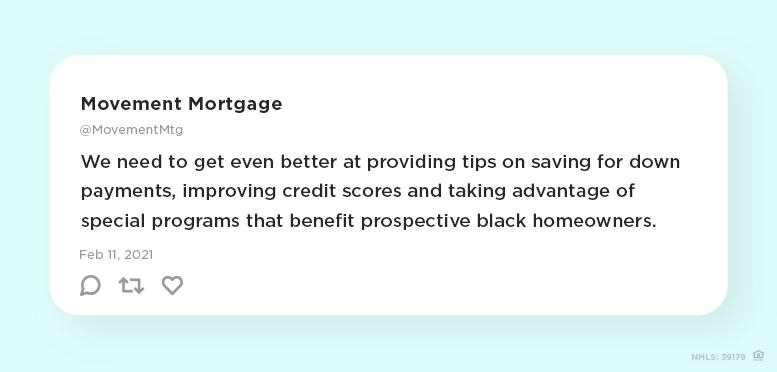The Challenges Facing Black Homeowners Today
In recognition of Black History Month, we wanted to take a moment to discuss black homeownership in the USA.
While black Americans are central to America's story, African-Americans are less likely than other racial groups to own homes. Few things lift communities more than homeownership. Owning homes creates wealth, brings stability and evokes pride. But the gap in homeownership rates between black Americans and white Americans is huge and we thought it was worth exploring while making a commitment to try and reverse the trend.
The housing bubble and the great recession
The Great Recession in America was a severe financial crisis that started in late 2007 and officially lasted until mid-2009. However, it didn't just stop then. It took many years for the economy to recover to pre-crisis levels in terms of employment, consumer spending, the cost of living and the nation's overall gross domestic product (GDP).
This slow recovery was due largely to American households and financial institutions paying off huge debts following the bursting of the housing bubble, the housing market correction and the subprime mortgage crisis. Movement Mortgage was actually created smack dab in the middle of this crisis, one of the biggest financial meltdowns in American history.
Black homeownership by the numbers
Black households had been seeing a substantial increase in homeownership between 1989 and 2005. But the housing crisis — in which black households had a disproportionately larger number of subprime mortgages than their counterparts — more than wiped out that increase. Subsequently, black homeowners have been the slowest to recover.
In 2019, research commissioned by the National Association of Real Estate Brokers found that if black homeownership had remained at its 2000 levels — before being decimated by the housing crisis — there would be 770,000 additional black homeowners today.
Let's shed some light on the homeownership gap:
- Owning A Home: At the start of 2020, 44% of African Americans were homeowners. That figure lagged behind Hispanic American households, of which 49% owned homes. It also lags behind the 74% of white Americans who were homeowners.
- Net Worth: Black American households have an average net worth of $17,600. That's much lower — ten times lower, in fact — than the $171,000 average net worth of white households in America.
- Millennials: The financial burden of student loans and the trend of putting off marriage contributed to a decline in millennial homeownership when compared to Gen X & Baby Boomers before them. But even so, black millennials lag even further. According to the Urban Institute, while almost 39% of white millennials, aged 18 to 34, own a house, just 14.4% of black millennials do.
- Trust: The systemic long-term trust issues black households have with financial institutions may be one of the underlying reasons that, as of 2019, over 1.7 million black millennials who qualify for a mortgage don't own a home. For those who aren't yet qualified, the rising costs of rent putting a strain on savings can keep them from achieving homeownership if that's a goal of theirs.
Black homeownership continues to lag
Since owning a home is still considered to be one of the best ways to grow wealth, low homeownership rates in black communities directly correlates to net worth in that community. Building equity in a home is like having a built-in savings account where wealth is earned every month by making mortgage payments instead of paying rent.
In a recent blog post for HousingWire, Montell Watson, our Director of Corporate Strategy, outlined two ways mortgage lenders like Movement can work to improve homeownership for black Americans. They include:
- Outreach and Education: Lenders must look for new and more effective ways to communicate why it's important to own a home and how homeownership can be a tool to create wealth for later use, whether it's for retirement or to leave to the next generation. Specifically, we need to get even better at providing tips on saving for down payments, improving credit scores and taking advantage of special programs that benefit prospective black homeowners, especially first-time homebuyers, veterans and growing families.

- Loan Officer Diversity and Inclusion: Enhancing diversity within the industry also offers an excellent opportunity to build trust with black Americans who have lost confidence in financial institutions based on past experiences. Minorities in the USA are expected to be the majority by 2025. This presents an opportunity to understand how we can better serve the changing demographic and it comes by having a much more diverse and inclusive team of loan officers.
Helping black families get on the path to homeownership
In a recent podcast, Casey Crawford, CEO of Movement Mortgage, said, “Even though I am not black, this is still my issue. This is an American issue.” He's right, of course.
We don't have all the answers, but we have an opportunity and an obligation to address the issues and make progress. There is no single silver bullet. Still, if nothing is done, the net worth inequality gap will continue to increase and the homeownership gap will continue to get worse.
Black American loan officers at Movement are eager to close this gap. We're committed to making this experience straightforward and easy to understand from beginning to end, with streamlined processes that ensure that buying your home is as smooth and stress-free as possible. If you're interested in homeownership, we're here to help.



